It looks like you're using an Ad Blocker.
Please white-list or disable AboveTopSecret.com in your ad-blocking tool.
Thank you.
Some features of ATS will be disabled while you continue to use an ad-blocker.
share:
we will observe whether blue eyes and blond hair were considered to be common among the aristocrats (upper class) in ancient Greek and Roman
society.
During times of antiquity many Aristocrats made claims to have descended from the gods to justify their position of authority.
The earliest literature of Greek mythology came from the epic poet like Homer who lived around 850 B.C , Ancient Greek & Roman Aristocrats admired poets like Homer and how their literature justified aristocratic privileges. One of the factors of ancient greek poets was their obsession with blue eyes and blonde hair to describe their deities.
Below is a complete list of Greek deities with blue eyes and blond hair:
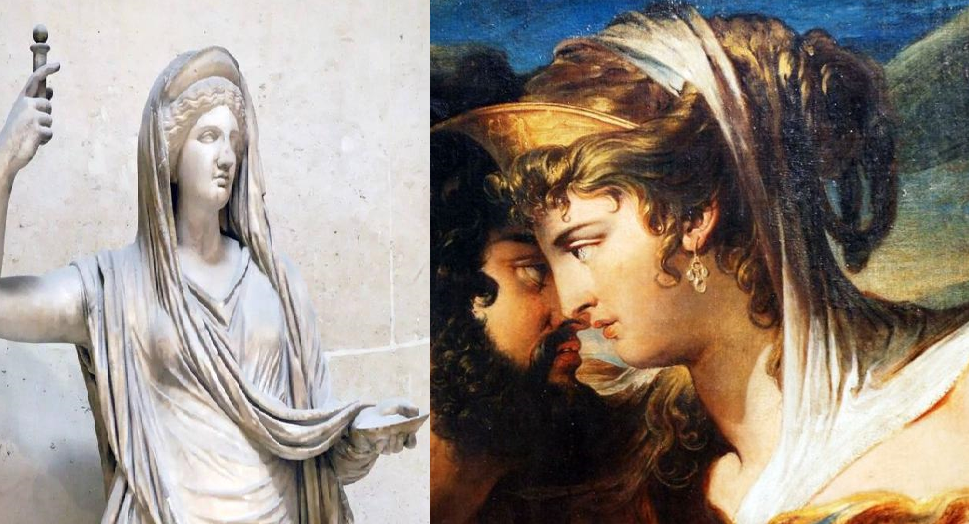
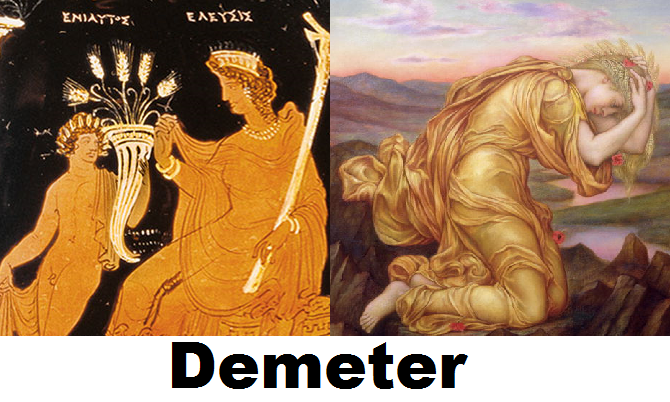
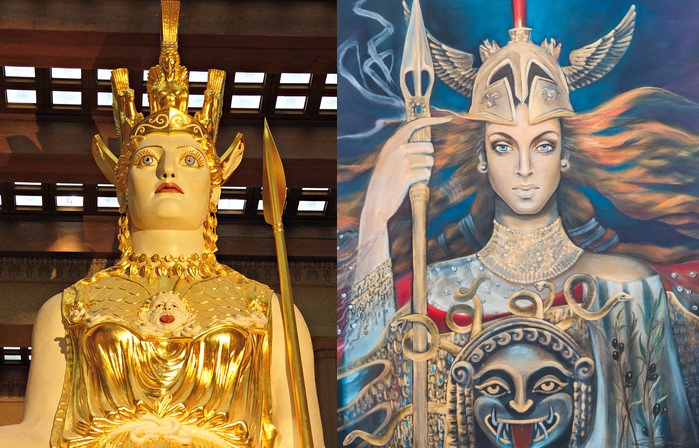
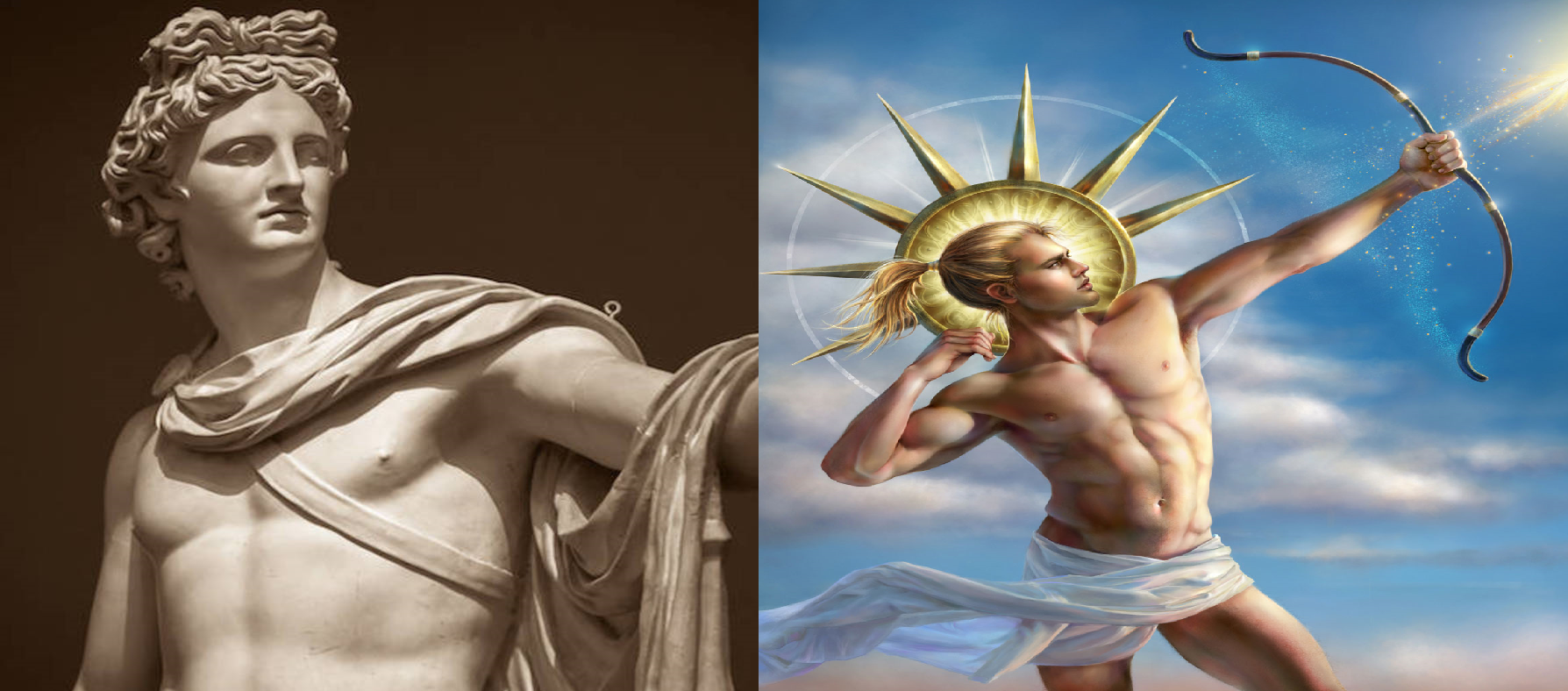
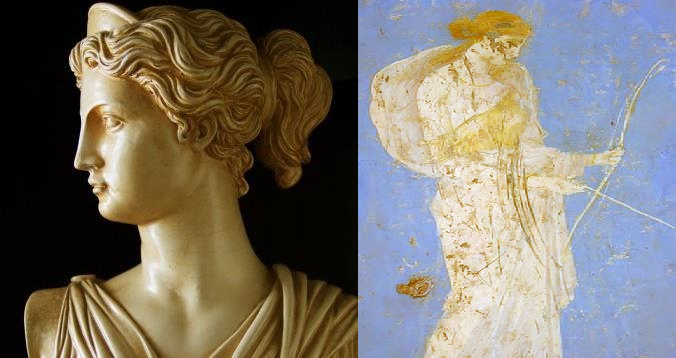
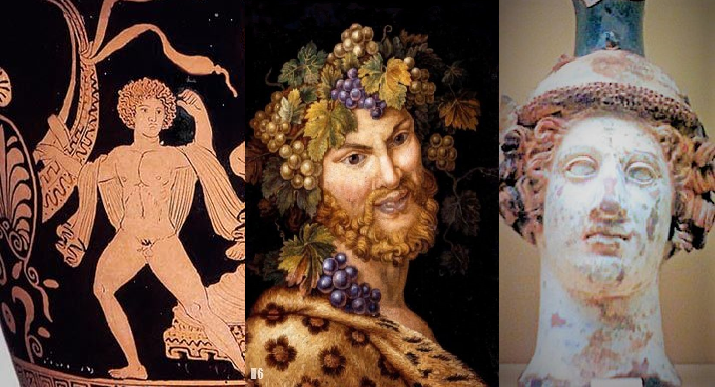
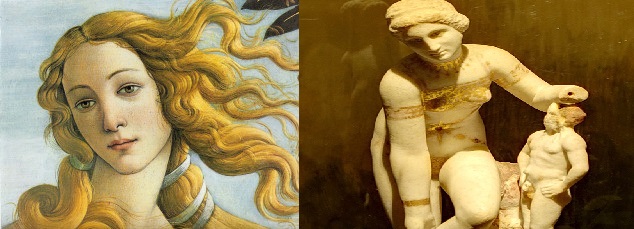
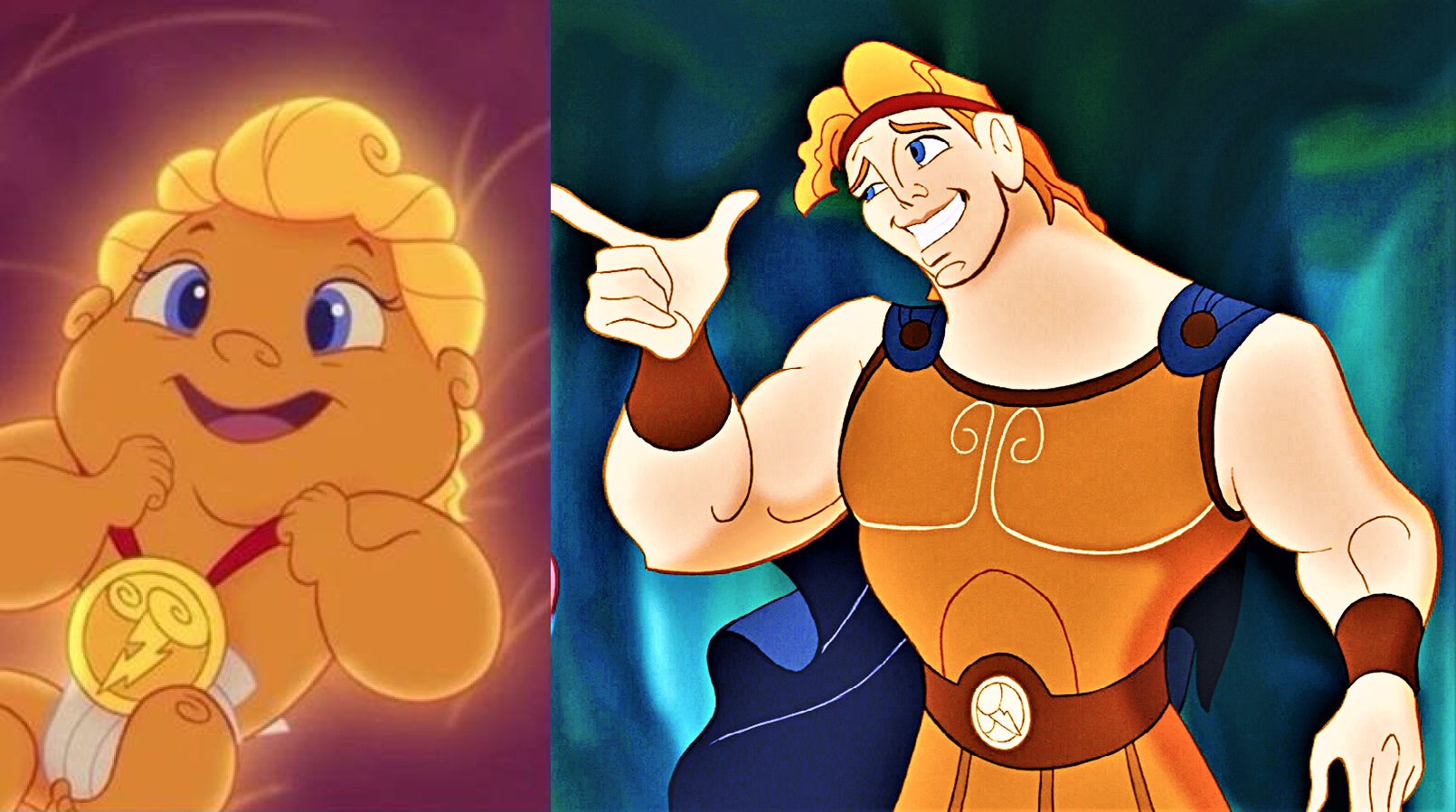
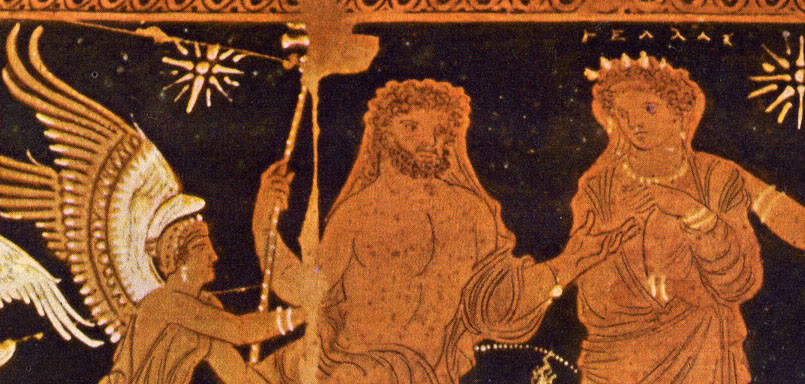

During times of antiquity many Aristocrats made claims to have descended from the gods to justify their position of authority.
The earliest literature of Greek mythology came from the epic poet like Homer who lived around 850 B.C , Ancient Greek & Roman Aristocrats admired poets like Homer and how their literature justified aristocratic privileges. One of the factors of ancient greek poets was their obsession with blue eyes and blonde hair to describe their deities.
Below is a complete list of Greek deities with blue eyes and blond hair:
Titan goddess Hera (sister & wife of Zeus)

“Even as when the lord of fair-haired Hera lighteneth, what time he maketh ready”
- [Homer, Iliad 750 B.C]
“All-powerful Hera drove these daughters in fear from the lovely halls... while still virgins, they entered the sanctuary of the purple-belted goddess, and said that their father far surpassed in wealth the golden-haired consort of holy, widely powerful Zeus.”
- [Bacchylides, Epinicians ; 470 B. C.]
Titan goddess Demeter (Sister of Zeus)

“But golden-haired Demeter sat there apart from all the blessed gods and stayed, wasting with yearning for her deep-bosomed daughter.”
- [Hesoid ; Hymn to Demeter ; 700 B.C]
“when fair-haired Demeter amid the driving blasts of wind separates the grain from the chaff,”
- [Homer, Iliad ; 750 B.C]
Athena (daughter of Zeus)

“Let her gather the older women on the Acropolis, at bright-eyed Athene’s shrine:
unlock the doors of the sacred temple, and lay on the knees of golden-haired Athene”
- [Homer , Iliad ; 750 B.C]
“Theano took the robe, laid it on golden-haired Athene’s knees..”
- [Homer , Iliad ; 750 B.C]
“Vow to golden-haired Athene that you’ll sacrifice at her shrine.”
- [Homer , Iliad ; 750 B.C]
“And once the golden-haired, bright-eyed goddess [Athena] made Diomedes an immortal god”
- [Pindar, Nemean X ; 444 B.C]
"So said the bright-eyed goddess and swiftly got up into the car with victory."
- [Hesiod, Shield of Heracles ; 700 B.C]
"And blue-eyed Athene went thence to great Olympus."
- [Hesoid ; the homeric hymns 700 B.C]
"....and Zeus's blue-eyed daughter"
- [Homer , Iliad ; 750 B.C]
"On this Athena came close up to him and said, "Son of Arceisius—pray to the blue-eyed damsel, and to Zeus her father.”
- [Homer , Odyssey ; 750 B.C]
Apollo (son of Zeus)

“But to us, Apollo, splendid in your golden hair, grant in your own contests”
- [Pindar, Odes ; 472 B. C]
“Golden-haired Apollo still loves the state of Syracuse and honors Hieron, the city's lawful ruler.”
- [Bacchylides, Epinicians ; 470 B. C]
“The golden-haired god [Apollo] sent gentle-minded Eleithuia and the Fates to help her.”
- [Pindar, Olympian ; 472 B. C.]
“beloved of the gold-haired god, Apollo, in fulness of heart”
- [Pindar , Odes ; 472 B.C]
“Golden-haired far-darter, son of Zeus”
- [Aristotle , Rhetoric ; 367 B.C.]
“the son of Leto [Apollo] , his golden locks flowed in clusters as he moved”
- [Apollonius Rhodes , Argonautica ; 283 B.C]
Artemis (daughter of Zeus)

“Never, never, Lady Artemis, golden-haired child of Zeus, may I endure that slavery.”
- [Euripides, Phoenician woman ; 411 B.C]
Dionysus (son of Zeus)

"And golden-haired Dionysus made brown-haired Ariadne, the daughter of Minos, his buxom wife”
- [Hesoid , the homeric hymns ; 700 B.C]
“Ah me, lord Dionysus, where are you faring without your companions, shaking your golden hair?”
- [Euripides, Cyclops ; 423 B.C]
“this new deity Dionysus, a sorcerer, a conjuror from the Lydian land, fragrant in hair with golden curls”
- [Euripides, Bacchae ; 405 B.C]
Aphrodite (daughter of Zeus)

“Aphrodite smiled upon the lovers, her yellow tresses received the tiring that was due to them”
- [Valerius Flaccus, Argonautica]
..and Hermione, who was fair as blond Aphrodite herself.
-- [Homer Odyssey , 750 B.C]
"ambrosial loveliness that Aphrodite wears when she goes dancing with the Graces , while as for her complexion it was whiter than sawn ivory. "
- [Homer Odyssey , 750 B.C]
"I will sing of Aphrodite, gold-crowned and beautiful, They clothed her with heavenly garments: and adorned her with golden necklaces over her soft neck and snow-white breasts"
- [Hesoid , Hymn to Aphrodite ; 750 B.C]
Heracles (son of Zeus)

“..To requite him [Heracles] for all his labors in purging land and sea. If I were young and still powerful in body, I would have seized my spear and dabbled those flaxen locks of his with blood..”
- [Euripides, Heracles ; 416 BCE]
“First he [Hercales] cleared the grove of Zeus of a lion, and put its skin upon his back, hiding his yellow hair in its fearful tawny gaping jaws.”
- [Euripides , Heracles 416 BCE]
Rhadamanthus (son of Zeus)

“Our people who saw it, when they carried fair-haired Rhadamanthus to visit Tityus”
- [Homer, Odyssey ; 750 B.C]
"There yellow-haired Rhadamanthus [son of Zeus] reigns"
- [Homer Odyssey ; 750 B.C]
Achilles (Hero)

"Men say that you [Achilles] are son to noble Peleus [grandson of Zeus], and that your mother is Thetis, fair-haired daughter of the sea ."
- [Homer Liad , 750 B.C]
“Athena came down from heaven: She stood behind him [Achilles] and held him back by his long yellow hair. No other man saw her but Achilles alone."
- [Homer Liad , 750 B.C]
"Achilles then bethought him of another matter. He went and cut off the yellow lock which he had let grow"
- [Homer Liad , 750 B.C]
"we laid you [Achilles] on your bed and cleansed your fair skin with warm water and with ointments"
- [Homer Odyssey , 850 B.C]
edit on 5-9-2017 by ancienthistorian because: (no reason given)
Odysseus (grandson of Hermes)
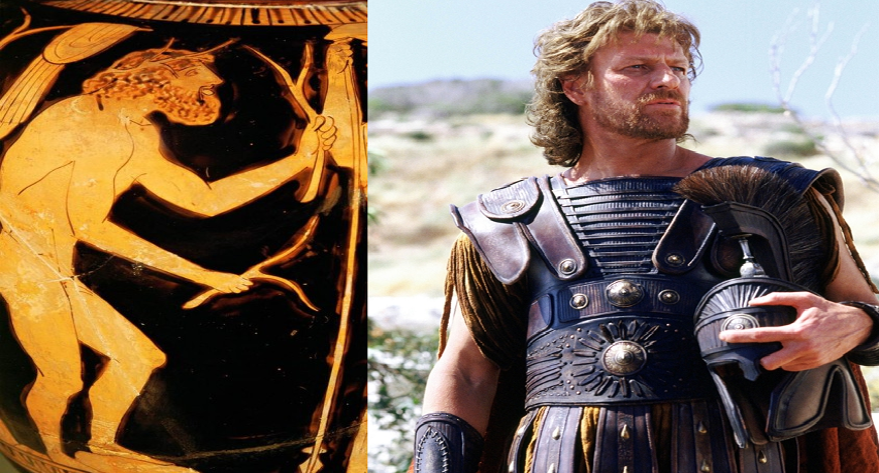
Athena speaks: “I will begin by disguising you [Odysseus] so that no human being shall know you; I will cover your body with wrinkles; you shall lose all your yellow hair; As she spoke Athena touched him with her wand and took away all his yellow hair.
- [Homer , odyssey ; 750 B.C]
Helen of Troy (Daughter of Zeus)
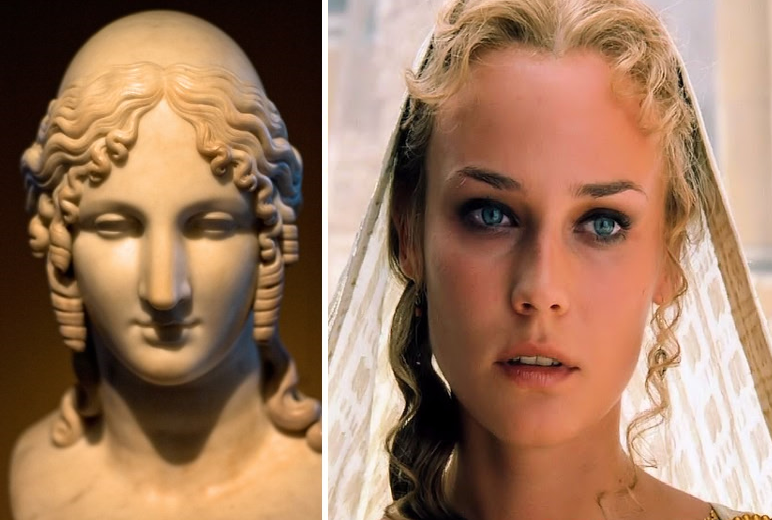
“and among them uprose goodly Alexander, lord of fair-haired Helen;”
“goodly Alexander, lord of fair-haired Helen, had smitten him with an arrow”
“Was it not for fair-haired Helen's sake?”
- [Homer , Iliad ; 750 B.C]
“It is for this that you [Helen] have cut your locks of golden hair?”
- [Euripides, Helen ; 412 B.C]
“Breast, cheek, and golden hair! ah, how grievous you have found Helen”
- [Euripides, Iphigenia in Aulis, 410 B.C]
Menelaus
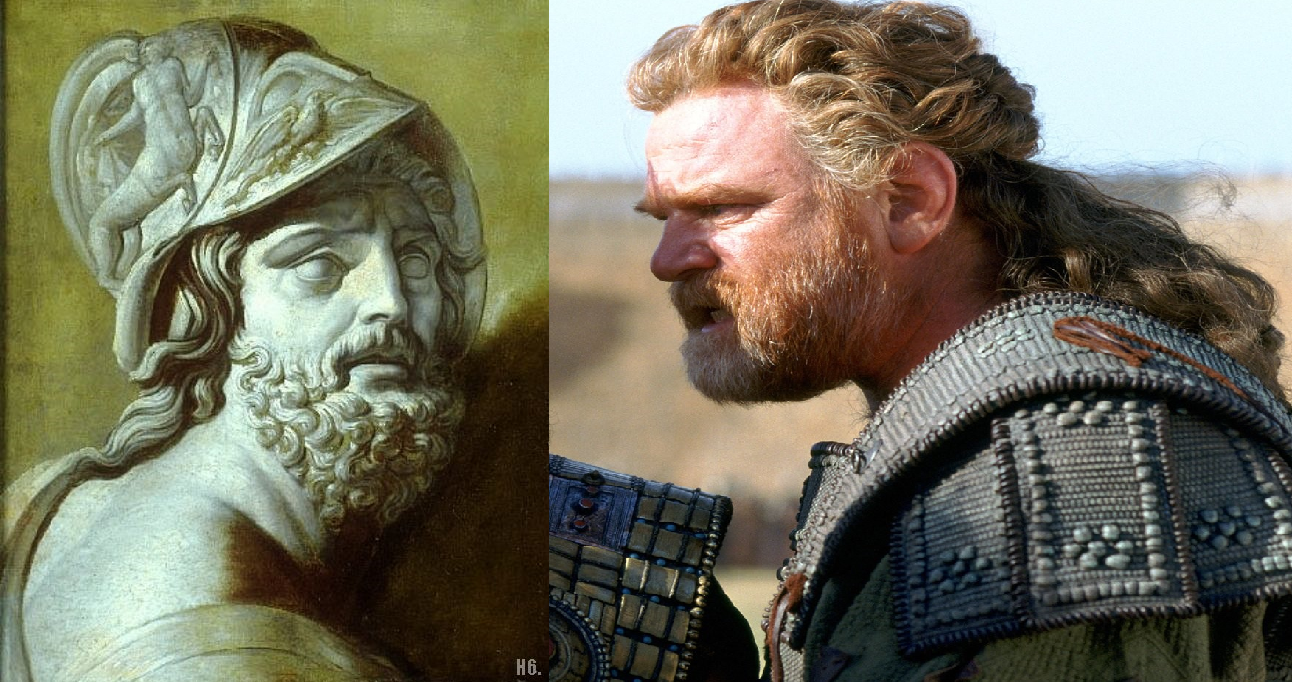
"Next to him, yellow-haired Menelaus son of Atreus [grandson of Zeus]"
“and even so Helen dishonoured the couch of golden-haired Menelaus”
“for he knew in his heart that golden-haired Menelaus would win, since he was greatest of the Achaeans.”
- [Homer Iliad ; 750 B.C]
Briseis (Trojan princess)
“For he lay in idleness among the ships in wrath because of the fair-haired girl Briseïs”
- [Homer, Iliad ; 750 B.C]
Calypso
“This I heard from fair-haired Calypso, and she said that she herself had heard it from the messenger Hermes.”
- [Homer , Odyssey; 750 B.C]
Graces (daughters of Zeus)
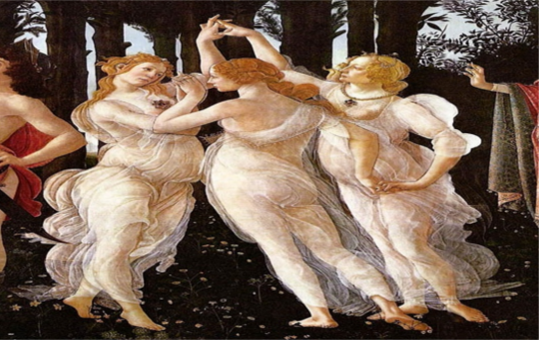
(The Graces & Muses were a bunch of demi-goddeses that were commonly referred as the “daughter’s of Zeus” who lived with the gods on Olympus)
"Son of Alexibias, the fair-haired Graces flare about you.”
“Aiakos wears the wreath luxuriant with flowers, the gift of the fair-haired Graces.”
- [Pindar, pythian ; 472 B. C.]
"Bright-eyed Muses, tell of the Tyndaridae, the Sons of Zeus, glorious children..."
Danaans/Achaeans (greek soldiers)
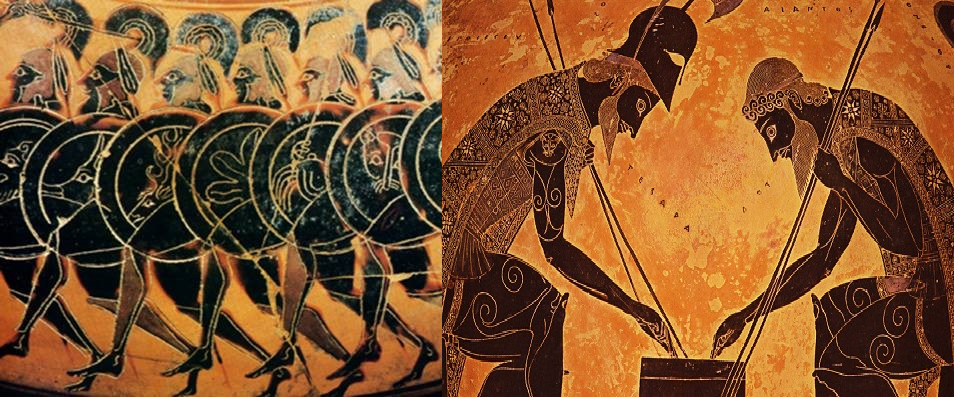
The “Danaans” or “Achaeans” were terms used by Homer to colectivly describe the Greek soldiers who fought against the Trojans during the Trojan war.
King Priam speaks: “Now I see all the bright-eyed Achaeans whom I know well.”
King Priam speaks: “But those forces then were fewer than these bright-eyed Achaeans."
- [Homer Iliad ; 750 B.C]
“Thereafter they were the high lords of the fair-haired Danaans;”
- [Pindar, Odes ; 472 B. C.]
“... man-conquering Eriphyle became the most powerful of the golden-haired Danaans.”
- [Pindar, Nemean Odes 480 B.C]
As we can see the ancient Greek poets were clearly obsessed with the idea of blonde hair and blue eyes for some reason.
But since those were just mythological characters and not real people, we will now look at a list of ancient Greek historical figures who had blond hair instead:
Hegesichora
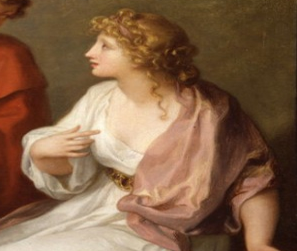
Aspasia
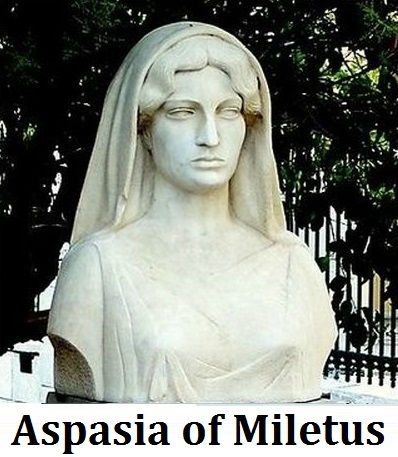
Aspasia (fl. 415 B.C) a priestess from Phocaea and the favorite concubine of the Persian prince Cyrus the Younger was blonde haired, the ancient writer Aelian describes her as thus:
''Of hair yellow, locks a little curling... skin delicate, complexion like roses''
- [Varia Historia, xii. 1]
Dionysius I of Syracuse
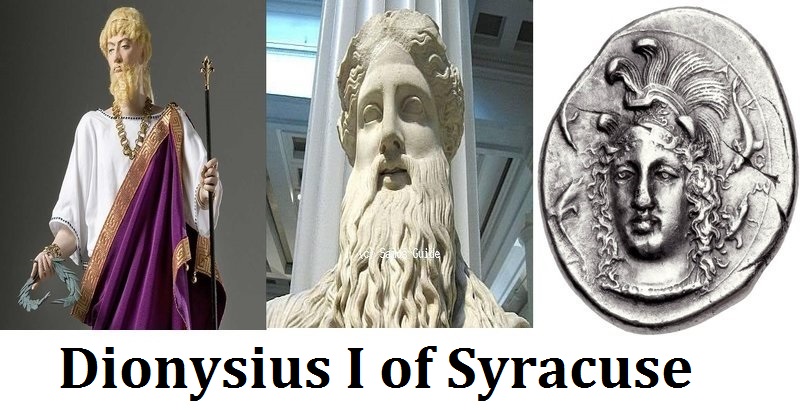
The Greek tryrant ruler Dionysius I of Syracuse (d. 367 B.C) had yellow hair and freckles - [Val. Max. i. 7. 6].
Alexander the Great

Plutarch discusses the statues of Alexander the great:
“Apelles, however, did not reproduce his (Alexander’s) complexion, but made it too dark and swarthy. Whereas he (Alexander) was of a fair colour, as they say.”
- [Plutarch, Life of Alexander ; 75 C.E]
Aelian on Alexander’s physical appearance:
“They affirm likewise that Alexander Son of Philip was of a neglectful beauty: For his hair curled naturally, and was yellow.”
- [Claudius Ælianus , Varia Historia XII ; 200 C.E]
Women of Sparta
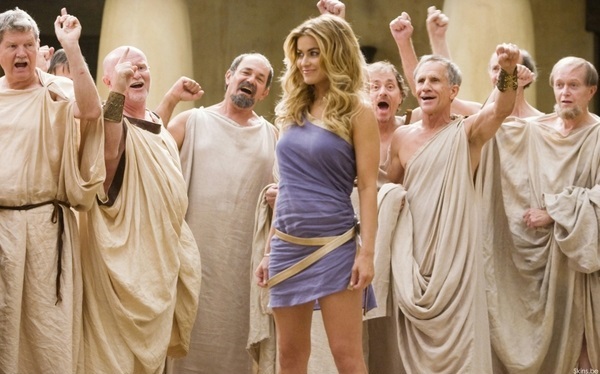
“Once in (spacious) Sparta the blonde daughters of the Lacedaemonians sang a song such as this.”
- [Bacchylides , Dithyrambs ; 470 B.C ]
Berenice II of Egypt
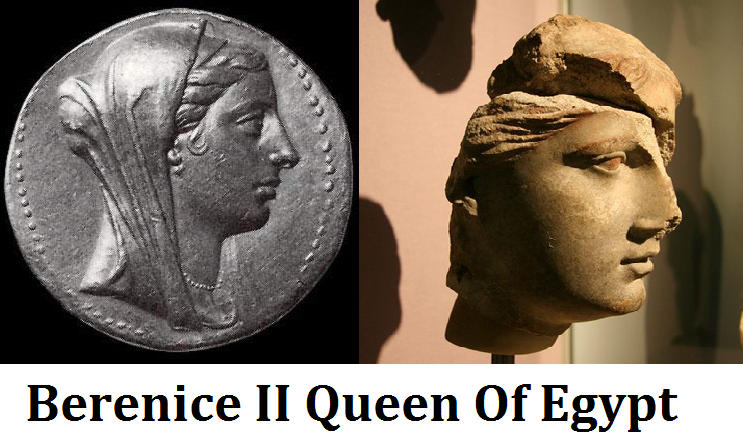
The Egyptian queen Bernice II from the Ptolemaic dynasty was also blond:
“Berenice's Hair, which, from her glorious head, Fulgent in brightness afar...the consecrate spoils shed by a blond-hued head”
- [Valerius Catullus, Carmina ; 84 B.C]
Critias
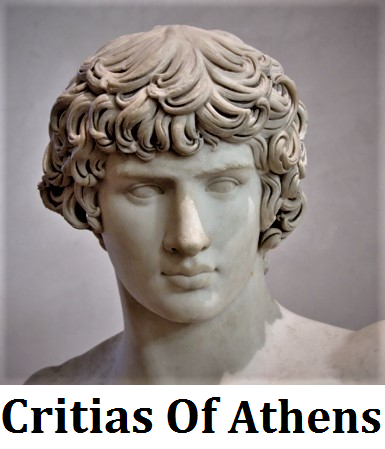
Critias , a noble Athenian oligarch and the uncle of Plato is also described as having red hair
“Pray thee , bid the red haired Critias do what his father commands him.”
- [Aristotle , Rhetoric ; 367 B.C.]
King ptolmey II of Egypt
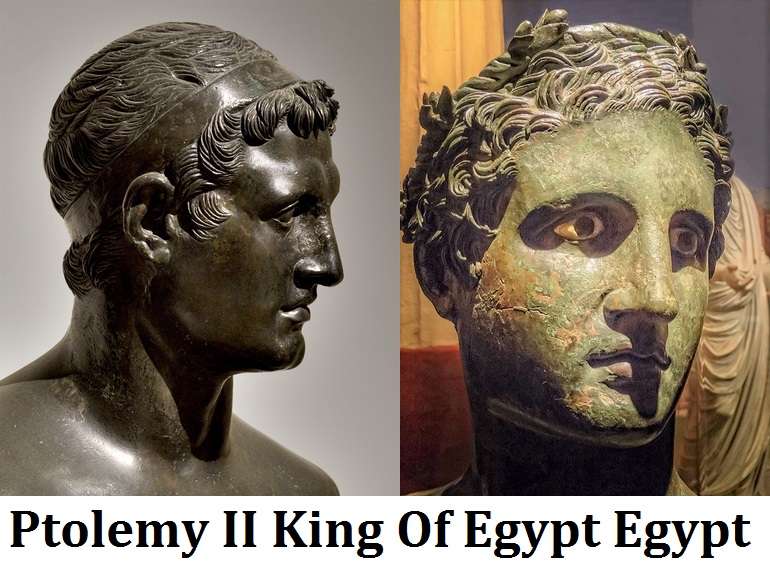
Ptolemy II Philadelphus the Macedonian prince who ruled Egypt from 283-246 B.C also had blond hair:
“..of such noble sort is the flaxen-haired prince that is throne in these level plains...
farewell, Lord Ptolemy; and I will speak of thee as of other demi-gods..”
- [Theocritus, Idylls ; 270 B.C]
Sappho’s Family
The Ancient greek poettess Sappho (who was of aristocratic origin) was dark haired (Alcaeus. fragment 55 Bergk) but her daughter Cleis is described as ''a girl whose hair is yellower than torchlight'' (Sappho. fragment 98a). Furthermore Sappho's eldest brother Charaxus is found described in Ovid as (flava) golden haired (Met. xii. 210). It seems then that although Sappho herself was brunette, most members of her family were in fact blonde which confirms the dominant blonde strain of the Greek aristocracy.edit on 5-9-2017 by ancienthistorian because: (no reason given)
Historical tribes with blue eyes and blonde hair:
The Bhudini tribe:
The Bhudini were an ancient tribe of iranian people who lived near the black sea , The Bhudini aswell as other Indo-Iranian/aryan tribes like the Scythians & Alans were commonly described by ancient greek & roman historians as having yellow/red hair. The ancient historian Herodotus gives an account of the Bhudini people:
“The Bhudini are a large and powerful nation: they all have deep blue eyes, and bright red hair. There is a town in their country called Gelonus which is made out of wood. Each side of its high outer wall is thirty stades long, made entirely of wood, and wood has been used for all its houses and shrines too. They have sanctuaries there which are dedicated to the Greek gods and equipped in the Greek manner with statues, altars and buildings of wood; and every third year they celebrate a festival of Dionysus”
- [Herodotus, The Histories ; 440 B.C]
Thracians:
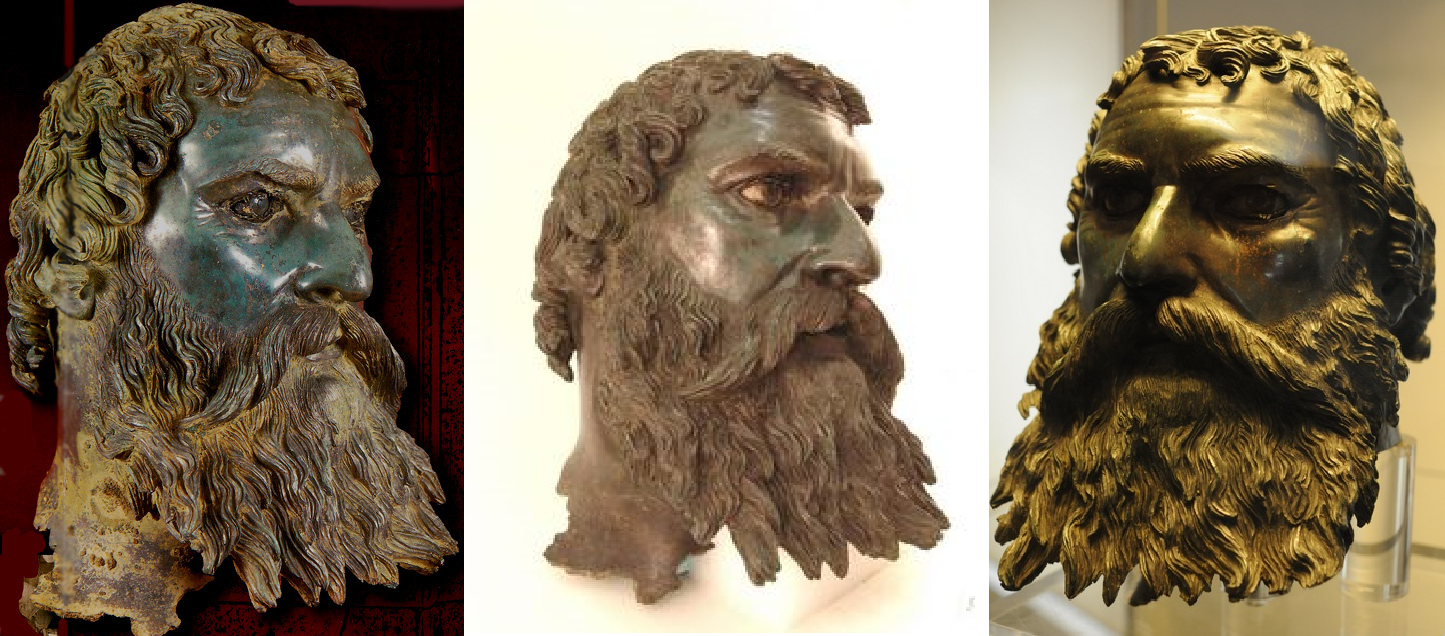
The Thracians were an ancient tribe of people who lived next to greece around the region of Bulgaria , During the Trojan war they allied with the Trojans in the war against the Greeks , In their tradition they also claim to have descended from the greek god Ares who they accepted as their patron god. The greek philosopher Xenophanes described them with blue eyes & red hair when he compared them with the Ethiopians:
“...Ethiopians are black and snub-nosed, those of the Thracians have blue eyes and red hair.”
- [ Xenophanes , Fragments ; 544 B.C ]
Dying hair blonde was a popular trend in ancient Rome:
In the book Encyclopedia of Hair, Victoria Sherrow explains:
"Hair dyes were popular in ancient Rome, and historians have found more than 100 different recipes that the Romans used for bleaching or dying hair. Light hair became fashionable after Greek culture reached Italy and the Roman legionnaires began bringing back fair-haired slaves from Gaul. Women, and some men, applied bleaching agents to their hair and then exposed it to the sun to achieve a golden or red color. Wealthier people could afford to sprinkle actual gold dust on their hair to create a blond look, as did the ancient Phoenicians. Another way to achieve a lighter shade was to cover the hair with flower pollen and the crushed petals of yellow-colored flowers. When harsh bleaching agents caused hair loss, Roman women resorted to wigs made from the hair of blond slaves."
There are many debates to why the Romans wanted to dye their hair , most historians assume it was used mainly for prostitution which started when the Romans captured & imported female sex slaves from Celtic/Germanic tribes.
Although another reason could simply be that blonde hair was viewed as an Aristrotic trait that may have determined a persons’s social status in Roman society , To prove my point here is a complete List of Roman Emperors who had blond hair and blue eyes:
Emperor Augustus:
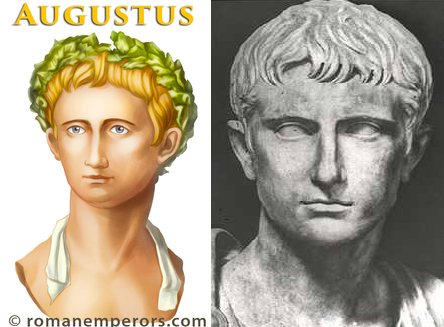
The physical description of the Roman emperor Augustus by Suetonius:
“He had clear, bright eyes, in which he liked to have it thought that there was a kind of divine power, and it greatly pleased him, whenever he looked keenly at anyone, if he let his face fall as if before the radiance of the sun; but in his old age he could not see very well with his left eye. His teeth were wide apart, small, and ill-kept; his hair was slightly curly and inclining to golden; his eyebrows met. His ears were of moderate size, and his nose projected a little at the top and then bent slightly inward. His complexion was between dark and fair. He was short of stature (although Julius Marathus, his freedman and keeper of his records, says that he was five feet and nine inches in height), but this was concealed by the fine proportion and symmetry of his figure, and was noticeable only by comparison with some taller person standing beside him.”
- [Suetonius , Life of Augustus ; 69 CE ]
Emperor Nero:
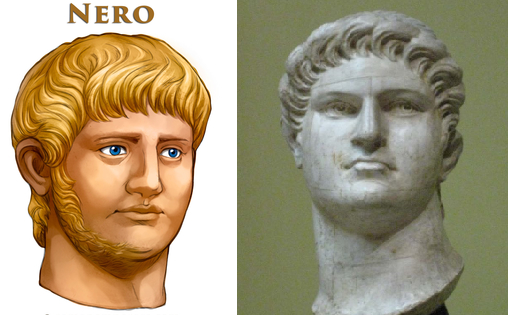
“He was about the average height, his body marked with spots and malodorous, his hair light blond, his features regular rather than attractive, his eyes blue and somewhat weak, his neck over thick, his belly prominent, and his legs very slender. His health was good, for though indulging in every kind of riotous excess, he was ill but three times in all during the fourteen years of his reign, and even then not enough to give up wine or any of his usual habits. He was utterly shameless in the care of his person and in his dress, always having his hair arranged in tiers of curls, and during the trip to Greece also letting it grow long and hang down behind; and he often appeared in public in a dining-robe, with a handkerchief bound about his neck, ungirt and unshod.”
- [Suetonius , Life of Nero ; 70 CE ]
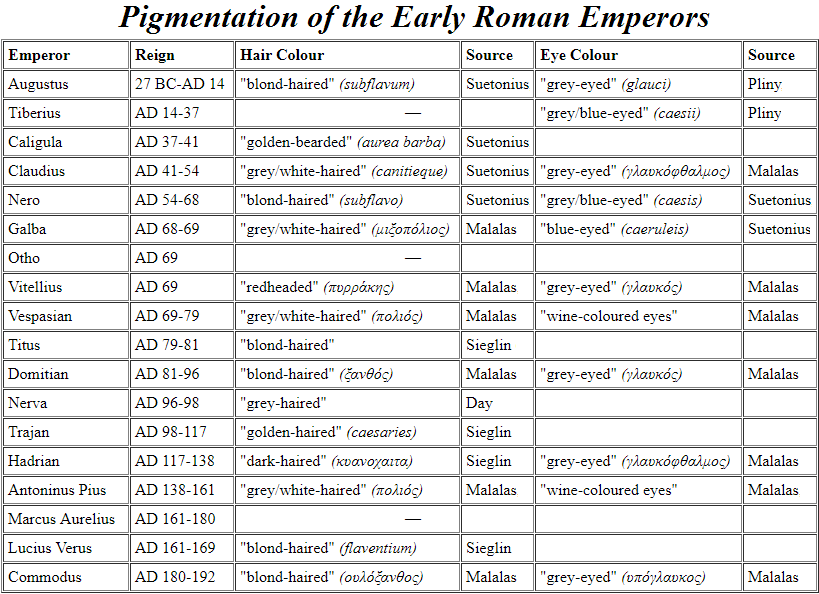
Although several of the Emperors were white/grey-haired old men, we still possess information which depicts a few of them as light-eyed. If records had been made during their youth, it is likely that they would have been called fair-haired as well. Of the 9 Emperors who had fair hair, 5 are listed as also having light eyes, whilst the remaining 4 have no noted eye colour. Remarkably, only one Emperor ‘Hadrian’ is called dark-haired, but even then, he was also described as light-eyed.
There is also believed to be 63 blond Roman historical figures who had blonde hair and many of whom were aristocrats (Patricians).
My Conclusion
With the research presented above It becomes quite clear that blond hair and blue eyes was seen as royal traits attributed to ancient Greek & Roman Aristocrats.
And that explains, why I am Zeus's mother. Kids never listen. His kids got his blue eyes and blonde hair from me. Cronos, got on my nerves eating his
children and I had to beat him silly and back into reality. So glad I was born the "Mother of Gods"
edit on 5-9-2017 by Diabolical1972 because:
(no reason given)
originally posted by: TobyFlenderson
a reply to: ancienthistorian
You present quite a bit of evidence for this. To what end?
Yeah, royalty are blonde and blue eyed (well I think we can guess to what end )...
OP, they probably weren't unless they had Slavic or Northern European in them....
Also, a sightly important note to the premise: the gods aren't real, so their imaginary hair colour is irrelevant when discussing Greco-Roman aristocratic genes.
a reply to: zazzafrazz
I thought he was going there too, but wanted to wait and see. Also, the whole idea of an aristocracy is repugnant to me.
I thought he was going there too, but wanted to wait and see. Also, the whole idea of an aristocracy is repugnant to me.
a reply to: zazzafrazz
So you can prove this assertion ... yes? No?
No is the correct answer. You cannot prove a negative.
So, in your opinion, the Gods were not real.
Or, to put it another way ... pics please
P
Also, a sightly important note to the premise: the gods aren't real, so their imaginary hair colour is irrelevant when discussing Greco-Roman aristocratic genes.
So you can prove this assertion ... yes? No?
No is the correct answer. You cannot prove a negative.
So, in your opinion, the Gods were not real.
Or, to put it another way ... pics please
P
a reply to: pheonix358
Dearest Pheonix,
Yes if I had the inclination and the time.
Do you attend ancient Greco Roman houses of worship? If so can you prove they are real and they parted with their genes to a few goat herders near the Acropolis 2.5 thousand years ago?
I know a bunch of Greeks, Italians, Croatians etc. Plenty of them have blue or green eyes and not one of them is descended from the Greek pantheon of gods. If they are, they certainly are a talentless bunch, not a single fast sprinter or thunder bolt thrower amongst them
Dearest Pheonix,
Yes if I had the inclination and the time.
Do you attend ancient Greco Roman houses of worship? If so can you prove they are real and they parted with their genes to a few goat herders near the Acropolis 2.5 thousand years ago?
I know a bunch of Greeks, Italians, Croatians etc. Plenty of them have blue or green eyes and not one of them is descended from the Greek pantheon of gods. If they are, they certainly are a talentless bunch, not a single fast sprinter or thunder bolt thrower amongst them
edit on 6-9-2017 by zazzafrazz because: (no reason given)
a reply to: ancienthistorian
Why would it matter? Oh and it takes more than some literary sources to tell if it were common. All that says is someone wrote that someone was blond haired and blue eyed.
Why would it matter? Oh and it takes more than some literary sources to tell if it were common. All that says is someone wrote that someone was blond haired and blue eyed.
Let me consult the Oracle and the 7 Virgins of the Pleiades......
Yes, I confirm....there were some true blondes with blue eyes, in ancient Mediterranean/South Europe area....
I checked Thoroughly!!!
Yes, I confirm....there were some true blondes with blue eyes, in ancient Mediterranean/South Europe area....
I checked Thoroughly!!!
originally posted by: zazzafrazz
Also, a sightly important note to the premise: the gods aren't real, so their imaginary hair colour is irrelevant when discussing Greco-Roman aristocratic genes.
It does rather depend on what the OP is trying to prove (this is not yet clear). If the gist is that the ancient Greeks valued fair hair and regarded it as an aristocratic feature, then the fictional status of their gods is beside the point. The descriptions are evidence of their assumptions about what gods ought to look like.
The Nazis would have used this kind of evidence to argue that the ancient Greeks had Aryan origins. I thought the OP might be heading in the same direction. Though I'm not sure they would have counted the redheads among the blond, as the OP does.
edit on 6-9-2017 by DISRAELI because: (no
reason given)
It was unusual enough to be remarked upon when it occurred, hence Helen's of Troy being remembered as a blonde. But blondes were the exception rather
than the rule.
Also 'bright eyed' did not necessarily mean 'blue eyed'.
The Greek and Roman aristocracy were not Aryan though, despite the Nazis trying to rewrite ancient history.
Also 'bright eyed' did not necessarily mean 'blue eyed'.
The Greek and Roman aristocracy were not Aryan though, despite the Nazis trying to rewrite ancient history.
Well the Greeks had a habit of mixing it up, among those blonds, they weren't afraid to throw in some dark skinned southerners
Hence we get colonizers or refugees, in the form of Aegyptus and Danaus who could be seen far out at sea with their black limbs sticking out of their white tunics,
Then there were the two black doves
(priestesses) spirited away from Egyptian Thebes to found the oracle of Dodona in Greece, the doves is explained as them being Egyptians whose accents is reminiscent of doves with the rolling Rs.
Black doves?? They were simply Egyptians.
Then we have Memnon an Ethiopian or upper Egyptian one of the many heroes of Troy, who came to aid his uncle Priam with 10,000 warriors.. Wait !!..his uncle ??..lol the Greeks didn't bother to explain squat.
Then there was the story of Jason and his Argonauts, traveled to the land of Colchis, somewhere on the black sea, the kingdom was reportedly a Nile valley colony.. He took up with Medea stole the golden fleece from daddy the king and fled back to Greece better than when he left.
Andromeda, we all saw the movies clash of the Titians, well in the original myth she is daughter to king Capheus and queen Cassiopeia of Ethiopia (not shown in the movies)
There are suggestion that Asop,
came from a Nile valley family living in Greece, hence the name Asop or Ethiop.
Cletus Niger or Cletus the Black one of Alexander's generals, but for the last name, which have the same root as Niger the river from where the term Negri or Negro is formed. is implied not proof of anything.
Hence we get colonizers or refugees, in the form of Aegyptus and Danaus who could be seen far out at sea with their black limbs sticking out of their white tunics,
Then there were the two black doves
(priestesses) spirited away from Egyptian Thebes to found the oracle of Dodona in Greece, the doves is explained as them being Egyptians whose accents is reminiscent of doves with the rolling Rs.
Black doves?? They were simply Egyptians.
Then we have Memnon an Ethiopian or upper Egyptian one of the many heroes of Troy, who came to aid his uncle Priam with 10,000 warriors.. Wait !!..his uncle ??..lol the Greeks didn't bother to explain squat.
Then there was the story of Jason and his Argonauts, traveled to the land of Colchis, somewhere on the black sea, the kingdom was reportedly a Nile valley colony.. He took up with Medea stole the golden fleece from daddy the king and fled back to Greece better than when he left.
Andromeda, we all saw the movies clash of the Titians, well in the original myth she is daughter to king Capheus and queen Cassiopeia of Ethiopia (not shown in the movies)
There are suggestion that Asop,
came from a Nile valley family living in Greece, hence the name Asop or Ethiop.
Cletus Niger or Cletus the Black one of Alexander's generals, but for the last name, which have the same root as Niger the river from where the term Negri or Negro is formed. is implied not proof of anything.
edit on 6-9-2017 by Spider879 because: (no reason given)
originally posted by: TobyFlenderson
a reply to: ancienthistorian
You present quite a bit of evidence for this. To what end?
To make a point , what else?
OP, they probably weren't unless they had Slavic or Northern European in them....
Firstly blonde hair and blue eyes didn't originate in Europe it came from the Near-East very recently where it spread all over Asia.
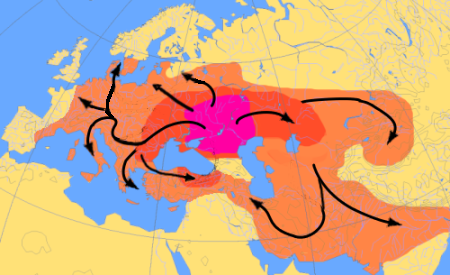
Secondly If you think that only Northern-Europeans and Slavs (who didn't exist prior to the Iron age btw) were the only people with blonde hair/blue eyes then you are naïve , I can tell you haven't even bothered reading my entire thread because I clearly stated many many non-European tribes like the Indo-Iranians also had blonde hair.
Also, a sightly important note to the premise: the gods aren't real, so their imaginary hair colour is irrelevant when discussing Greco-Roman aristocratic genes.
*sigh* Yeah I clearly said in my thread that these gods were "mythical and not based on real people" , the entire point of was that Greek poets glorified aristocrats through these Epic myths , one of the main characteristics of these "imaginary gods" were blue eyes and blond hair , If aristocrats (who claimed to have descended from those gods) had these same traits it would' obviously justify their positions of power , would it not?
Why would the Greeks glorify their gods with blue eyes and blond hair If the majority of Greeks had dark hair & brown eyes? explain that.
There are only 2 possible explinations:
1) These physical appearance of the gods were shaped to represent & glorify the ruling class.
2) The myths about the gods were based on earlier proto-Europeans who migrated into Northern-Europe.

edit on 6-9-2017 by ancienthistorian because: (no reason given)
a reply to: ancienthistorian
As I have pointed out, the Greeks weren't above mixing things up when it suits them, thus at least one Greek writer/ historian.. Herodotus wrote that the names of almost all the gods came from Egypt...not saying this is the case as the Greeks did try and linked their deities to that land, Zeus is sometimes identified with Amun, Heracles is sometimes painted as black with woolly hair and snub nosed he may very well be connected to Gilgamesh Mesopotamian hero god, Pan is an off shoot of the God Bes, a pygmy from the great lakes region.. Athena seemed to have some sorta Libyan origins.
So I am just saying be carful before being definitive.
As I have pointed out, the Greeks weren't above mixing things up when it suits them, thus at least one Greek writer/ historian.. Herodotus wrote that the names of almost all the gods came from Egypt...not saying this is the case as the Greeks did try and linked their deities to that land, Zeus is sometimes identified with Amun, Heracles is sometimes painted as black with woolly hair and snub nosed he may very well be connected to Gilgamesh Mesopotamian hero god, Pan is an off shoot of the God Bes, a pygmy from the great lakes region.. Athena seemed to have some sorta Libyan origins.
So I am just saying be carful before being definitive.
a reply to: Spider879
good point , I'm well aware of the middle-eastern (Sumerian) origins of the Greek pantheon , However I posted a thread a few months ago where I pointed out the physical appeance of gods from different cultures , I discovered that the ancient Hebrews , Hindus , Mayans and Sumerians described their gods as tall giants, fair skinned , blue eyes with blonde/red hair.
So yes the Greeks borrowed their stories from different cultures but those core physical characteristics still remained the same.
As I have pointed out, the Greeks weren't above mixing things up when it suits them, thus at least one Greek writer/ historian.. Herodotus wrote that the names of almost all the gods came from Egypt...not saying this is the case as the Greeks did try and linked their deities to that land, Zeus is sometimes identified with Amun, Heracles is sometimes painted as black with woolly hair and snub nosed he may very well be connected to Gilgamesh Mesopotamian hero god, Pan is an off shoot of the God Bes, a pygmy from the great lakes region.. Athena seemed to have some sorta Libyan origins.
So I am just saying be carful before being definitive.
good point , I'm well aware of the middle-eastern (Sumerian) origins of the Greek pantheon , However I posted a thread a few months ago where I pointed out the physical appeance of gods from different cultures , I discovered that the ancient Hebrews , Hindus , Mayans and Sumerians described their gods as tall giants, fair skinned , blue eyes with blonde/red hair.
So yes the Greeks borrowed their stories from different cultures but those core physical characteristics still remained the same.
edit on 6-9-2017 by ancienthistorian because: (no reason given)
Wow.
You can't even discuss ancient history on ATS anymore without a bunch of hysterical knee-jerkers implying you have some kind of racist nazi agenda.
Sad.
You can't even discuss ancient history on ATS anymore without a bunch of hysterical knee-jerkers implying you have some kind of racist nazi agenda.
Sad.
While some undoubtedly were blonde, "Fair-haired" covers a lot of ground, from lighter browns to lighter reds.
In addition, the "gold" in association with deities may have been intended as "the element, gold" and not necessarily "yellowish." I have NOT taken intensive courses in Greek art and history so I can't say for sure, but I do know (from my courses in Egyptology) that when deities were described as having bones/skin/other body parts of gold/silver/lapis/etc, it actually meant the element and not a color.
Secondly, there were a lot of Greek city-states with many different types of government and ruling structures and classes of elites. You can pick out a handful of examples but there's no big overarching rule/law/etc saying that anyone who had lighter hair automatically got preference. And contrary to your written examples (and paintings and art that do not date to the period in question), art that is contemporary with those writings show darker haired people (Tomb of the Diver is one good example, as is any "black figured vase" or "red figured vase.") This example shows gods with light brown/graying hair (the gods are Ocean and Tythus) and Dionysus here has reddish-brown hair
City-states battled each other and enslaved each other, so daughters and sons were exchanged (contract marriages) or taken (slavery, captives, forced assimilation of the children of client-kings) from one city-state to another on a regular basis. Wars produced children of rape.
There's no real indication that there were more blondes among the elite than the non-elite. It's possible but the numbers are not likely to be overwhelmingly large.
In addition, the "gold" in association with deities may have been intended as "the element, gold" and not necessarily "yellowish." I have NOT taken intensive courses in Greek art and history so I can't say for sure, but I do know (from my courses in Egyptology) that when deities were described as having bones/skin/other body parts of gold/silver/lapis/etc, it actually meant the element and not a color.
Secondly, there were a lot of Greek city-states with many different types of government and ruling structures and classes of elites. You can pick out a handful of examples but there's no big overarching rule/law/etc saying that anyone who had lighter hair automatically got preference. And contrary to your written examples (and paintings and art that do not date to the period in question), art that is contemporary with those writings show darker haired people (Tomb of the Diver is one good example, as is any "black figured vase" or "red figured vase.") This example shows gods with light brown/graying hair (the gods are Ocean and Tythus) and Dionysus here has reddish-brown hair
City-states battled each other and enslaved each other, so daughters and sons were exchanged (contract marriages) or taken (slavery, captives, forced assimilation of the children of client-kings) from one city-state to another on a regular basis. Wars produced children of rape.
There's no real indication that there were more blondes among the elite than the non-elite. It's possible but the numbers are not likely to be overwhelmingly large.
edit on 6-9-2017 by Byrd because: (no reason given)
new topics
-
How To Spot Fake U.F.O. Photos
Aliens and UFOs: 1 hours ago -
Scary video of face in an abandoned house
Paranormal Studies: 3 hours ago -
Just Came Across These Unusual Old UFO Pics
Aliens and UFOs: 5 hours ago -
LA Mayor Bass Demanded $49M in Additional LAFD Cuts One Week Before Wildfires
Mainstream News: 7 hours ago -
Sepultura - Territory - With New Drummer Greyson Nekrutman
Music: 8 hours ago -
Carry On!
Short Stories: 9 hours ago
top topics
-
This should be plastered all over the airwaves
Mainstream News: 14 hours ago, 24 flags -
LA Mayor Bass Demanded $49M in Additional LAFD Cuts One Week Before Wildfires
Mainstream News: 7 hours ago, 17 flags -
Archbisop Vigano Warns of Deep State and Deep Church
New World Order: 17 hours ago, 16 flags -
Oh, Good Gosh. “Kremlin Warns Stay Away from Greenland.”
World War Three: 16 hours ago, 11 flags -
Just Came Across These Unusual Old UFO Pics
Aliens and UFOs: 5 hours ago, 6 flags -
Scary video of face in an abandoned house
Paranormal Studies: 3 hours ago, 4 flags -
Carry On!
Short Stories: 9 hours ago, 3 flags -
How To Spot Fake U.F.O. Photos
Aliens and UFOs: 1 hours ago, 3 flags -
Sepultura - Territory - With New Drummer Greyson Nekrutman
Music: 8 hours ago, 2 flags
active topics
-
Old School Punk
Music • 566 • : underpass61 -
-@TH3WH17ERABB17- -Q- ---TIME TO SHOW THE WORLD--- -Part- --44--
Dissecting Disinformation • 3987 • : duncanagain -
To become president, Zelensky had to learn Ukrainian
Political Conspiracies • 44 • : SteamyAmerican -
Los Angeles brush fires latest: 2 blazes threaten structures, prompt evacuations
Mainstream News • 383 • : WeMustCare -
Judge rules president-elect Donald Trump must be sentenced in 'hush money' trial
US Political Madness • 120 • : Vermilion -
This should be plastered all over the airwaves
Mainstream News • 55 • : Astrocometus -
Oh, Good Gosh. “Kremlin Warns Stay Away from Greenland.”
World War Three • 32 • : SteamyAmerican -
Candidate TRUMP Now Has Crazy Judge JUAN MERCHAN After Him - The Stormy Daniels Hush-Money Case.
Political Conspiracies • 2190 • : WeMustCare -
Iran Sympathizers in Biden Admin Leak Intelligence on Israel Attack Plans
Mainstream News • 86 • : WeMustCare -
How To Spot Fake U.F.O. Photos
Aliens and UFOs • 1 • : nugget1
